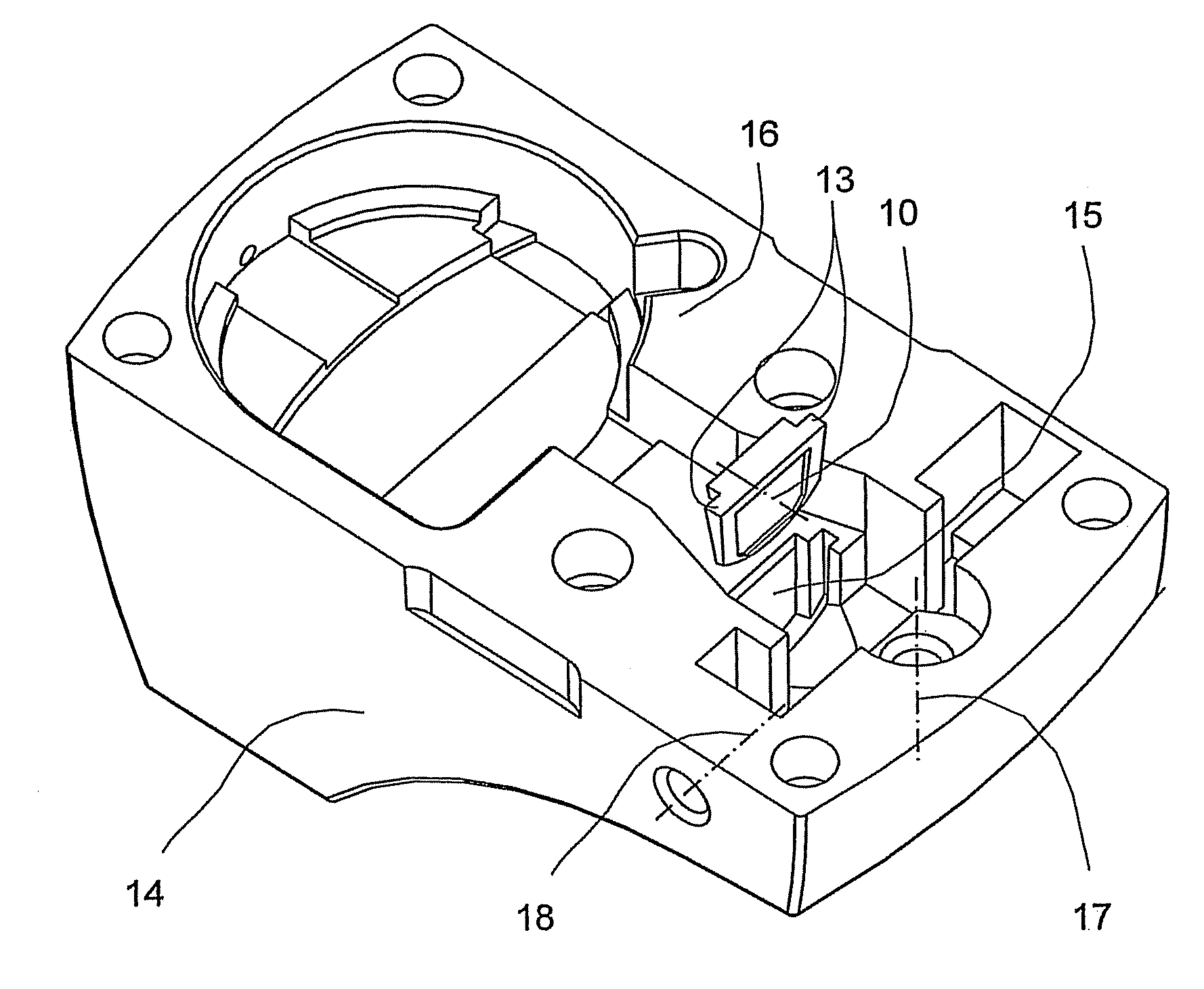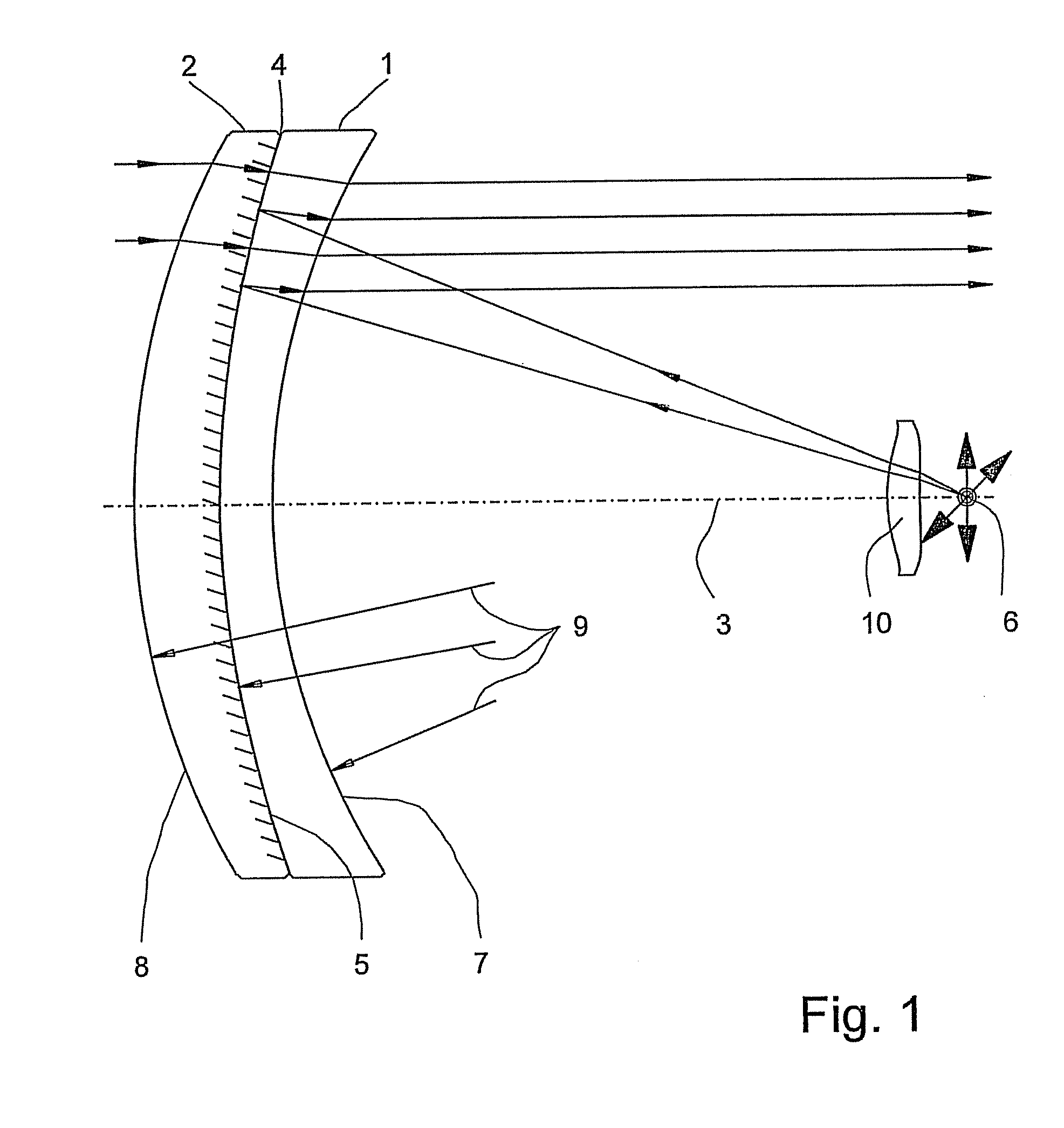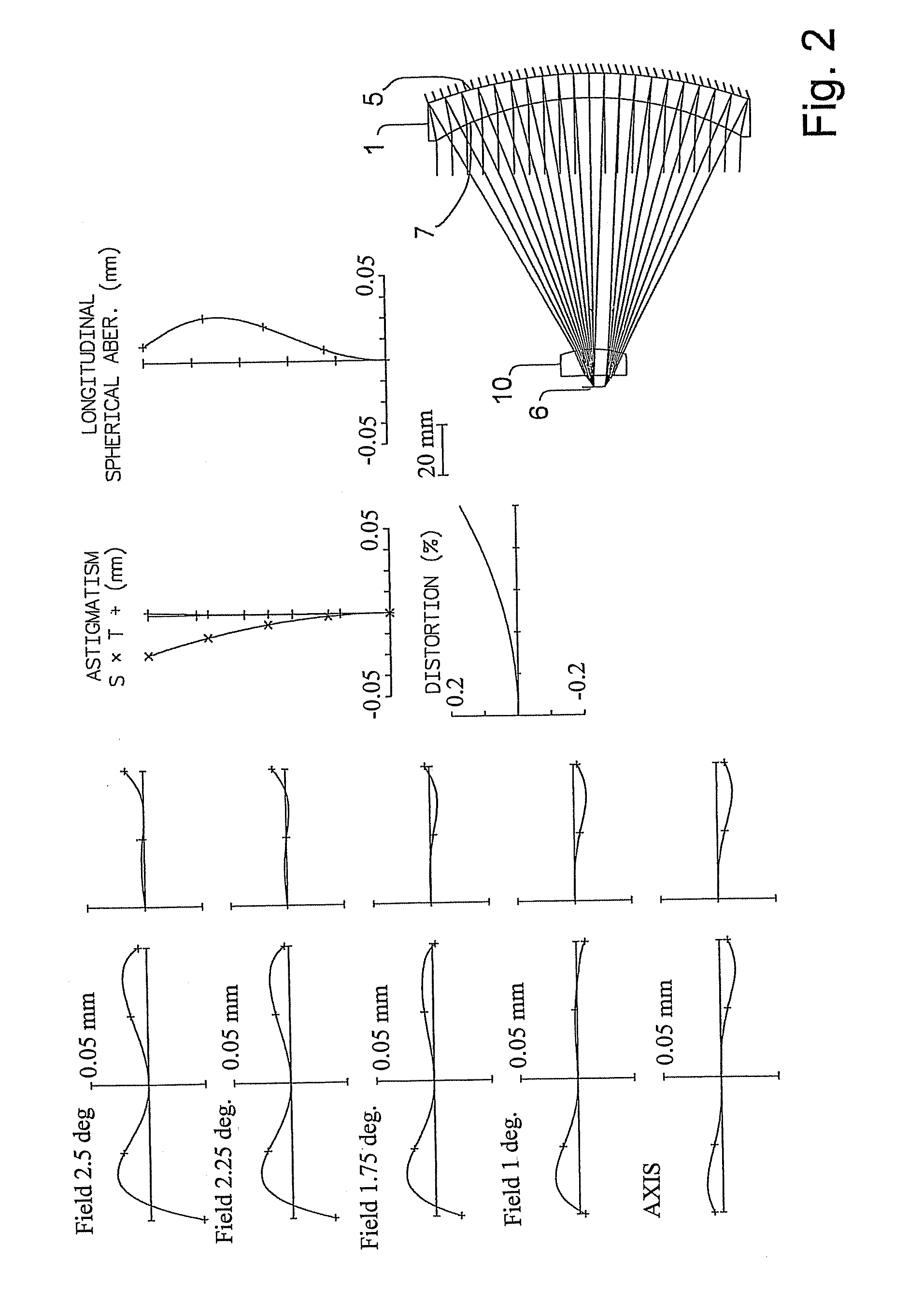Coaxially arranged, off-axis optical system for a sighting device or aiming device
a technology of optical system and aiming mark, which is applied in the direction of surveying, navigation, weapons, etc., can solve the problems of system-dependent image errors, aiming errors, and not all of the rays proceeding from the aiming mark will be imaged at infinity, so as to achieve good flattening of the image field and high optical imaging quality of the aiming mark
- Summary
- Abstract
- Description
- Claims
- Application Information
AI Technical Summary
Benefits of technology
Problems solved by technology
Method used
Image
Examples
Embodiment Construction
[0034]The correction diagrams show the ratios for the ×0.4, ×0.7 and ×0.9 image height in addition to the transverse aberration on the optical axis and at the image edge. As regards the assessment of quality, it is immaterial whether or not the ray tracing is carried out from the aiming mark toward infinity or, in reverse, from infinity toward the image plane. The ray direction is reversible and merely causes a mirroring of the curve shapes at the axes or a sign reversal. For purposes of a clearer depiction, the beam path for the image center is shown in the upper part of the graphic depiction of the beam path and the path for the outermost edge point is shown in the lower part. In real devices, usually only one side of the optics is provided.
[0035]Light sources emitting in the red region, chiefly light-emitting diodes, are often used as aiming marks. The wavelength region is relatively narrow-band. Therefore, the system is evaluated exclusively monochromatically.
[0036]Aside from th...
PUM
 Login to View More
Login to View More Abstract
Description
Claims
Application Information
 Login to View More
Login to View More - R&D
- Intellectual Property
- Life Sciences
- Materials
- Tech Scout
- Unparalleled Data Quality
- Higher Quality Content
- 60% Fewer Hallucinations
Browse by: Latest US Patents, China's latest patents, Technical Efficacy Thesaurus, Application Domain, Technology Topic, Popular Technical Reports.
© 2025 PatSnap. All rights reserved.Legal|Privacy policy|Modern Slavery Act Transparency Statement|Sitemap|About US| Contact US: help@patsnap.com



